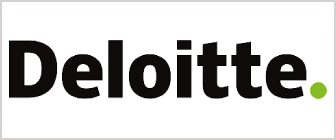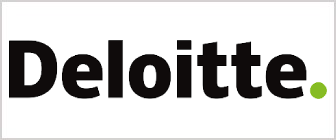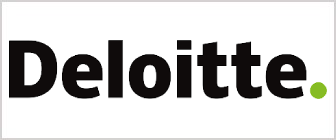Why did you choose to pursue a career in tax? Was there an ‘aha’ moment? If so, please describe.
Earlier in my career, I was debating whether I should choose Audit instead of Tax. I participated in an audit rotation program for 6 months. After the rotation, I thought that Tax was more interesting because the tax consultation work involved more in terms of business planning aspects and could receive higher, direct appreciations from the clients for the advice we provided. Also, I was always interested in learning about cross-border business transactions and the global economy and politics, therefore I chose Tax.
From your career, is there a particular deal that sticks out to you as a turning point, or watershed moment for you, and why? What did you learn or take away from that deal?
When I was a senior associate, I got involved in a legal entity rationalization project for one of our clients. It started rather small but as I learned more about the client’s business issues and concerns at the global level and started to earn the client’s trust, they wanted me to get involved in the global restructuring project. The project was not only about advising the tax on the new legal structure but included various other components. This included a preparation of feasibility studies under the new business scheme and transactions, assisting the client in the implementation including communicating with their legal advisors, supporting the communication plan to their employees, negotiating with their suppliers, etc. I travelled with the client all over the world to complete this project from its inception to the end. After the project’s completion, the CEO of the client sent my partner an appreciation letter, writing how much they appreciated my contribution to this project.
I learned the importance of knowing the client, staying close to the client and their concerns, being empathetic with them, and assisting them as a business adviser and not just as a tax adviser. That experience helped me build my basic consultation and communication skills, which made me a lead tax partner today for a number of multinational clients.
What do you consider to be the greatest achievements of your career to date?
The greatest achievement of my career is that I have a number of clients who I continue to serve from the early stages of my career till now. I have changed my job a few times and relocated to many different countries, however, those clients decided to stay with me whenever I went.
Tax work in the pandemic era
What kind of challenges did you face adapting to the workplace amid the pandemic?
Communication with a client and our staff. I strongly believe that relationship building starts from face-to-face meetings and building a personal connection with people. And in the present Covid-19 scenario with online meetings and telephone calls.
Are there any initiatives that you have observed which you feel may help your clients deal with the repercussions of the Covid-19 pandemic?
Many businesses are suffering because of the pandemic and struggling to remain profitable. The most helpful advice I could give to most of my clients was to generate cash and to reduce their operational expenses. Consciously, I offered my clients service to look for reductions in their global tax cost, or to identify refundable taxes, and also reviewed and suggested opportunities to reduce their operational cost by managing their tax internally along with combining technology and/or an outsourcing model.
What is the most significant change to your region/jurisdiction’s tax legislation or regulations in the past 12 months?
The Japanese government implemented various tax incentives to help businesses and people in needs during this pandemic. This includes a one-year NOL (net operating loss) carry-back provision to companies with stated capital of JPY (Japanese Yen) 1 billion or less, a tax payment deferral system, the telework investment incentives, etc. Also, the Japanese government established tax incentives for digital transformation incentives and in becoming carbon neutral to address the global trend and the social agenda.
What was one of the most interesting deals you worked on in the past year and why?
Business succession planning for a family-owned company and an estate tax planning for the owner family which involved a global restructuring of their business. It was interesting and simultaneously complex since we were engaged to assist the owner as well as the business which requires application of professional knowledge and experience.
What potential other legislative/regulatory changes are on the horizon that you think will have a big impact on your region/jurisdiction?
Automation of tax filing. I think that the government will increasingly require a better tax governance by corporate taxpayers by utilizing the technology. Starting from the new invoice system for Japanese consumption tax, I believe this trend will expand into other areas of tax.
A career in tax
What key piece of advice would you give to young attorneys just getting into a firm or entry-level job? Is there something you wish you knew when you were first starting out?
Acquiring tax technical knowledge is fundamental. However, developing soft skills such as effective communication, project management, and people management skills are also very important. These skills cannot be obtained overnight. Also, the advisory business is a people’s business. In order to become a trusted adviser, I don’t think we can think lightly about the development of our own personal character.
What does your firm do to nurture and promote talent? Do you think it compares well to others in your market in this area?
We established a dedicated “People First” team where four leaders drive Well-Being, People Experience, Global Talent Development, and Human Resource initiatives. We are serious about Diversity, Equity & Inclusion in all aspects and try to bring innovation into the career development model and people engagement in our workplace. I am leading the Well-Being initiative.
What does the tax function of the future look like?
Shift in Advisory. Compliance work will be automated or outsourced to an external vendor. I think that the tax function will become more like COE and a governance body.
This document has been prepared solely for the purpose of publishing in the 2022 Women in Tax Leaders guide (APAC edition) and may not be used for any other purpose. This document and its contents may not be reproduced, redistributed or passed on, directly or indirectly, to any other person in whole or in part without Deloitte’s prior written consent.
Deloitte refers to one or more of Deloitte Touche Tohmatsu Limited (“DTTL”), its global network of member firms, and their related entities (collectively, the “Deloitte organization”).
DTTL (also referred to as “Deloitte Global”) and each of its member firms and related entities are legally separate and independent entities, which cannot obligate or bind each other in respect of third parties. DTTL and each DTTL member firm and related entity is liable only for its own acts and omissions, and not those of each other. DTTL does not provide services to clients. Please see www.deloitte.com/about to learn more.
Deloitte is a leading global provider of audit and assurance, consulting, financial advisory, risk advisory, tax and related services. Our global network of member firms and related entities in more than 150 countries and territories (collectively, the “Deloitte organization”) serves four out of five Fortune Global 500® companies. Learn how Deloitte’s approximately 330,000 people make an impact that matters at www.deloitte.com.
This communication contains general information only, and none of Deloitte Touche Tohmatsu Limited (“DTTL”), its global network of member firms or their related entities (collectively, the “Deloitte organization”) is, by means of this communication, rendering professional advice or services. Before making any decision or taking any action that may affect your finances or your business, you should consult a qualified professional adviser.
No representations, warranties or undertakings (express or implied) are given as to the accuracy or completeness of the information in this communication, and none of DTTL, its member firms, related entities, employees or agents shall be liable or responsible for any loss or damage whatsoever arising directly or indirectly in connection with any person relying on this communication. DTTL and each of its member firms, and their related entities, are legally separate and independent entities.
© 2021. For information, contact Deloitte Global.



